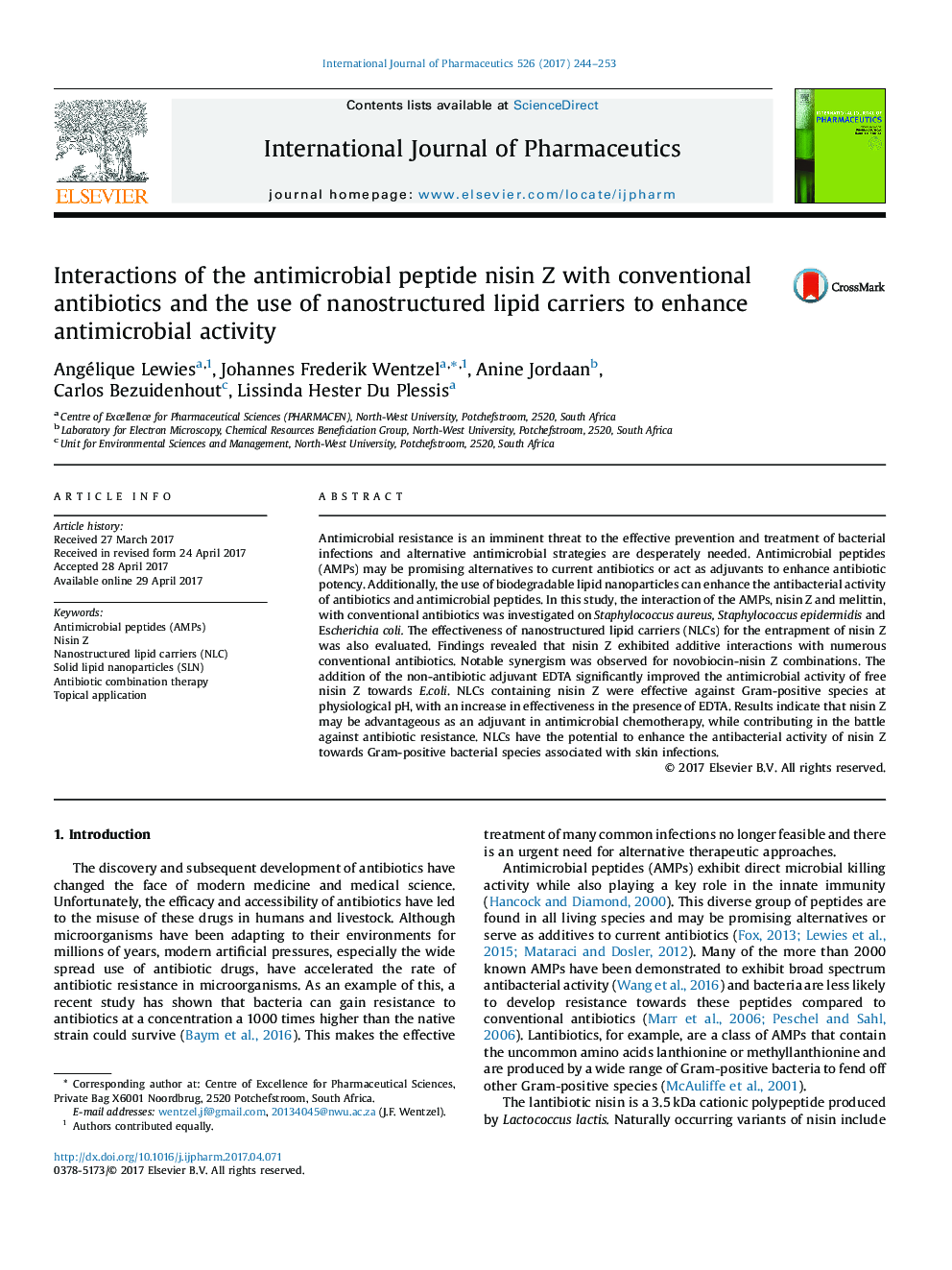| Article ID | Journal | Published Year | Pages | File Type |
|---|---|---|---|---|
| 5550278 | International Journal of Pharmaceutics | 2017 | 10 Pages |
Antimicrobial resistance is an imminent threat to the effective prevention and treatment of bacterial infections and alternative antimicrobial strategies are desperately needed. Antimicrobial peptides (AMPs) may be promising alternatives to current antibiotics or act as adjuvants to enhance antibiotic potency. Additionally, the use of biodegradable lipid nanoparticles can enhance the antibacterial activity of antibiotics and antimicrobial peptides. In this study, the interaction of the AMPs, nisin Z and melittin, with conventional antibiotics was investigated on Staphylococcus aureus, Staphylococcus epidermidis and Escherichia coli. The effectiveness of nanostructured lipid carriers (NLCs) for the entrapment of nisin Z was also evaluated. Findings revealed that nisin Z exhibited additive interactions with numerous conventional antibiotics. Notable synergism was observed for novobiocin-nisin Z combinations. The addition of the non-antibiotic adjuvant EDTA significantly improved the antimicrobial activity of free nisin Z towards E.coli. NLCs containing nisin Z were effective against Gram-positive species at physiological pH, with an increase in effectiveness in the presence of EDTA. Results indicate that nisin Z may be advantageous as an adjuvant in antimicrobial chemotherapy, while contributing in the battle against antibiotic resistance. NLCs have the potential to enhance the antibacterial activity of nisin Z towards Gram-positive bacterial species associated with skin infections.
Graphical abstractDownload high-res image (177KB)Download full-size image
